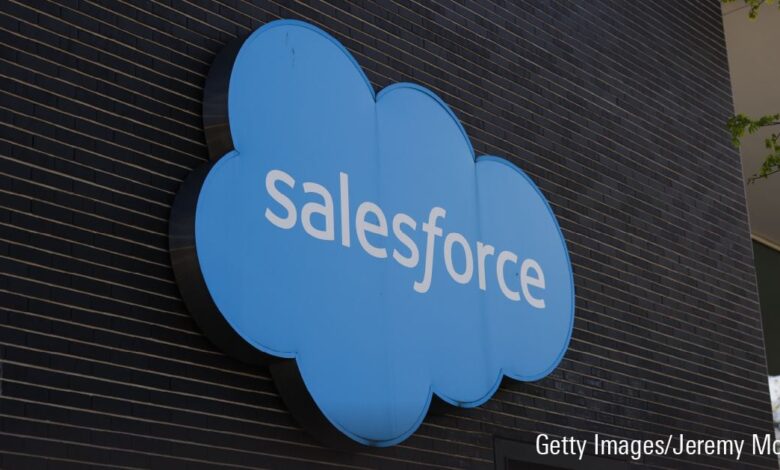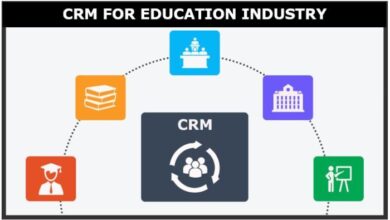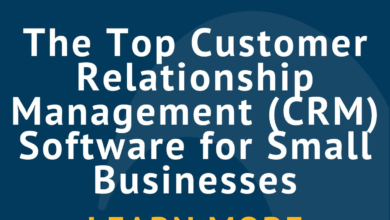After Earnings, Is Salesforce Stock a Buy, Sell, or Fairly Valued?

Salesforce CRM released its fiscal first-quarter earnings report on May 29, 2024. Here’s Morningstar’s take on Salesforce’s earnings and stock.
Key Morningstar Metrics for Salesforce
What We Thought of Salesforce’s Q1 Earnings
- We are lowering our fair value estimate for wide-moat Salesforce to $285 per share from $300 after the company reported lower-than-expected fiscal 2025 first-quarter revenue and guided for second-quarter revenue lower than we anticipated.
- After robust fourth-quarter results, management pointed to macro trends reverting to where they have been for the past couple of years, with elongated sales cycles and more approvals factoring into guidance.
- Management maintained its full-year outlook, raising the possibility of further disappointment throughout the rest of the year. The firm had success during the quarter with multicloud deals, while management remains excited about the artificial intelligence opportunity, which we believe Salesforce is well positioned to capitalize on.
- With the stock down since the earnings report, we think this presents a buying opportunity.
Fair Value Estimate for Salesforce Stock
With its 4-star rating, we believe Salesforce’s stock is undervalued compared with our long-term fair value estimate. Our fair value estimate is $285 per share, which implies a fiscal 2025 enterprise value/sales multiple of 7 times, adjusted price/earnings multiple of 29 times, and a 3% free cash flow yield.
We model a five-year compound annual growth rate for total revenue of 10% through fiscal 2029, which we think will be driven by solid growth in all clouds, with the most notable strength coming from the data cloud. Our revenue forecast assumes modest revenue acceleration after depressed growth in fiscal 2023 and 2024. We forecast non-GAAP operating margin expanding from 31% in fiscal 2024 (actual) to the mid-30s in fiscal 2029, which we think is consistent with management’s new profitability focus.
Read more about Salesforce’s fair value estimate.
Economic Moat Rating
For Salesforce overall, we assign a wide economic moat, arising primarily from switching costs, with the network effect serving as a secondary moat source. Based on the company’s product lines, we believe the Sales Cloud, Service Cloud, Salesforce Platform, and others have earned wide moats, while the Marketing Cloud, Commerce Cloud, and Data Cloud have carved out narrow moats. While services, which is a small portion of revenue, help facilitate software sales and contribute to customer relationships, we do not think the company’s professional services business would warrant a moat on a stand-alone basis. We believe Salesforce’s moat will probably allow the company to earn returns in excess of its cost of capital over the next 20 years.
We believe customers value Salesforce’s discrete clouds as stand-alone solutions, but the various clouds are highly complementary and are tightly integrated with one another, making the complete set of solutions more compelling. In our opinion, the strength of these clouds is important but should not overshadow the importance of all the solutions being offered under one umbrella by Salesforce as customers are usually looking to consolidate vendors. These factors combine to reinforce our wide-moat assertion. As Salesforce offers a wider set of related and best-in-class solutions, we believe it becomes more deeply entrenched in its customers as they adopt multiple clouds.
Read more about Salesforce’s moat rating.
Financial Strength
We believe Salesforce is a financially sound company. Revenue is showing solid growth, while margins are expanding rapidly. As of January 2024, Salesforce had $14.2 billion in cash and investments, offset by $9.4 billion in debt, mostly related to the Slack acquisition, resulting in a solid net cash position. Gross leverage sits at 0.9 times trailing non-GAAP EBITDA, which we do not view as problematic, given that we expect free cash flow to grow rapidly in the coming years.
Read more about Salesforce’s financial strength.
Risk and Uncertainty
We assign Salesforce an Uncertainty Rating of High. From a big-picture perspective, we believe CEO Marc Benioff will be difficult to replace, as he pioneered the software industry, co-founded the company, and led it to be a dominant force with a broad portfolio of sales and marketing-related solutions.
We believe the most important metric for Salesforce investors is revenue growth. Therefore, continued deceleration in the Sales Cloud, or growth that does not materialize as expected in the Service, Marketing, and Commerce Clouds or the Salesforce Platform would likely have an adverse impact on the stock, in our view.
Read more about Salesforce’s risk and uncertainty.
CRM Bulls Say
- Salesforce dominates salesforce automation but still only controls 30% in a highly fragmented market that continues to grow double digits each year, suggesting there is still room to run.
- The company has added legs to the overall growth story, including customer service, marketing automation, e-commerce, analytics, and artificial intelligence.
- Management is likely going to focus on expanding margins after years of subscale profitability.
CRM Bears Say
- As the company grows larger, it may be increasingly difficult for Salesforce to grow faster than its various end markets.
- Salesforce has entered new areas via acquisition and has arguably paid material premiums in the process. Integration risk is real, as is the risk of increasingly large, dilutive, or ill-conceived deals.
- Despite its size, Salesforce has generated substandard margins in recent years, and its renewed focus on profitability may negatively affect already-slowing growth.
This article was compiled by Sokhoeun Noeut.



